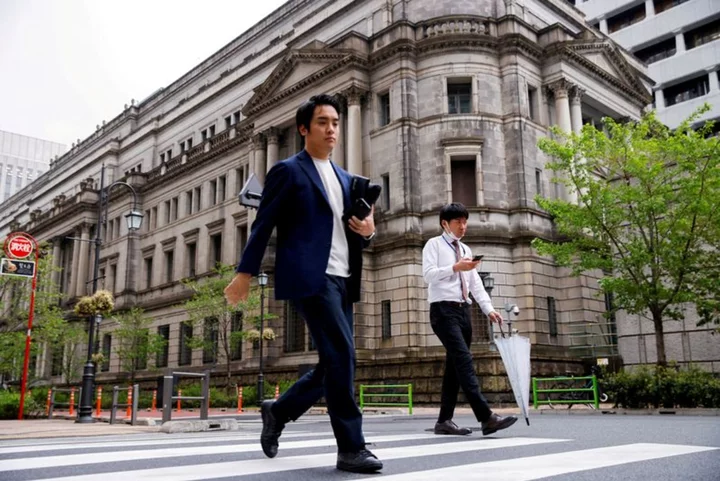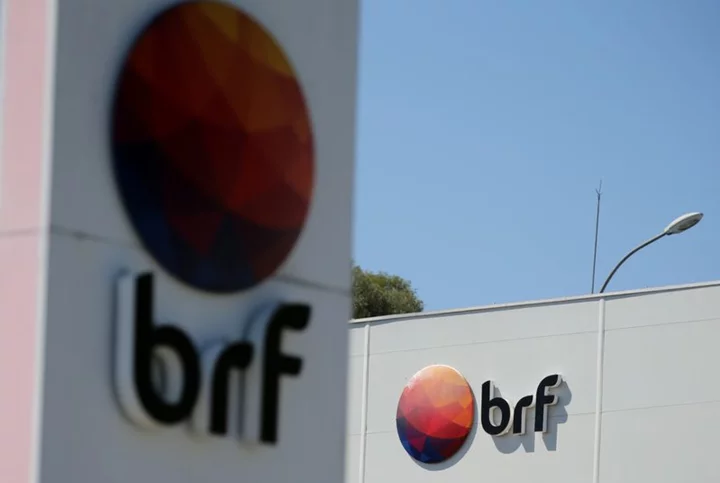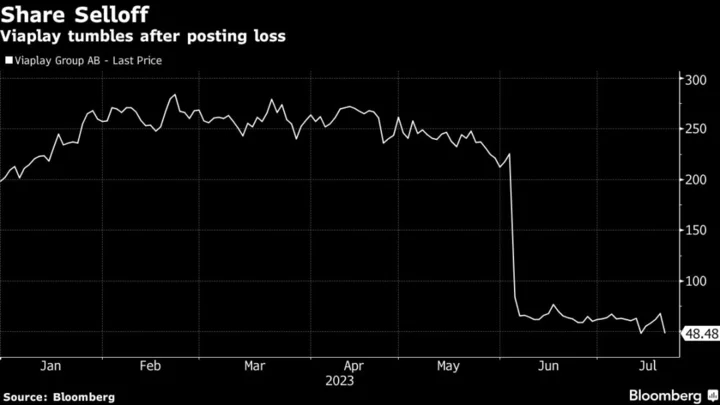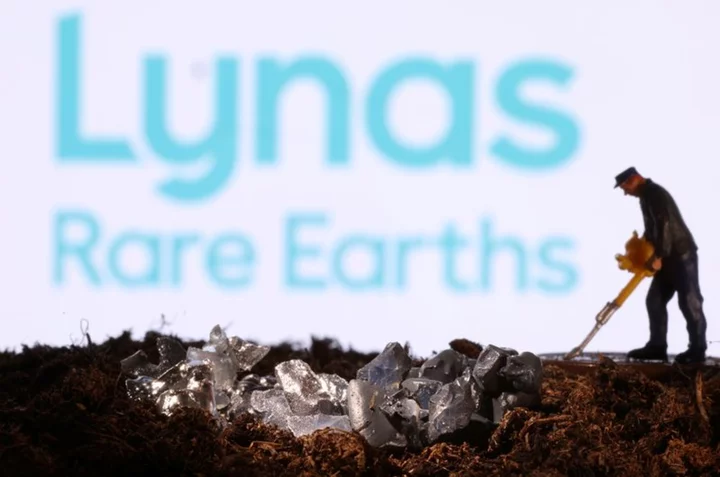By Leika Kihara
TOKYO (Reuters) -Japanese companies are raising prices and wages at a pace not seen in the past, the Bank of Japan (BOJ) said on Monday, stressing the need to watch for signs that inflationary pressures were broadening.
Price hikes have spread rapidly among Japanese companies and sectors that had previously been cautious about passing on costs to households, the central bank said.
"We must continue to scrutinise whether price hikes to pass on higher costs could broaden and last longer," the central bank said in a full version of its quarterly outlook report.
Unlike the United States and Europe, however, Japan is still seeing inflation driven by higher goods prices rather than wage pressures, the BOJ said.
The gross-domestic-product (GDP) deflator, which strips away the effect of import prices, has risen at a much slower pace in Japan than in the United States and Europe, it said.
The data "suggests the rise in Japan's inflation is mainly driven by cost-push pressure from rising import prices," the report said.
But companies are becoming more open to raising pay, the BOJ said, stressing the need to scrutinise how such wage moves could affect the outlook for inflation.
The assessment of the price and wage outlook came after the central bank's decision on Friday to tweak its bond yield control policy and allow long-term interest rates to rise in line with inflation.
In a summary of its outlook report released on Friday, the BOJ sharply revised up this year's inflation forecast as a wide range of firms passed on higher costs to households.
The bank also upgraded its assessment on inflation expectations to say they were "showing signs of re-accelerating," reflecting its growing alarm about broadening inflationary pressure.
The outlook for wages and inflation expectations is crucial to how quickly the BOJ could move towards dismantling its controversial bond yield control policy.
Core consumer inflation hit 3.3% in June, staying above the BOJ's 2% target for the 15th straight month and keeping the central bank under pressure to phase out its massive stimulus.
(Reporting by Leika Kihara; Editing by Kim Coghill and Sam Holmes)









